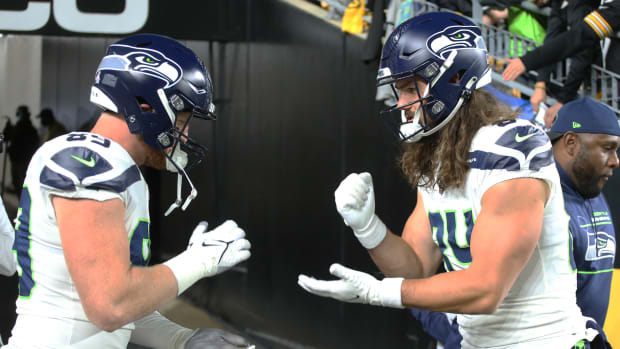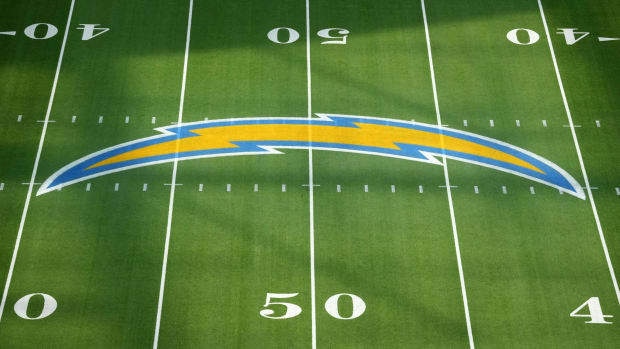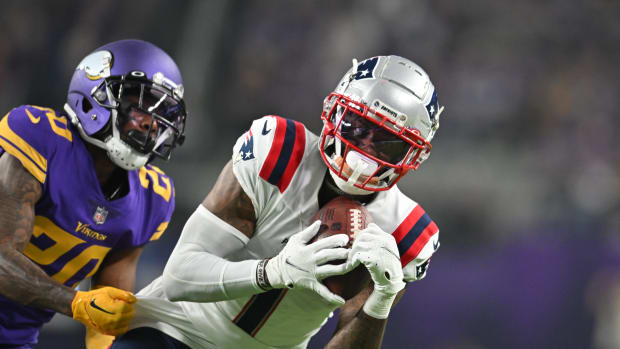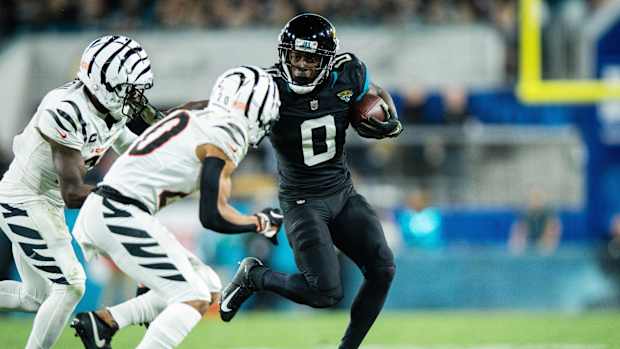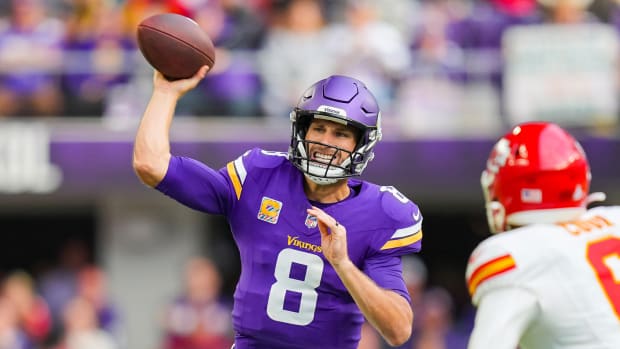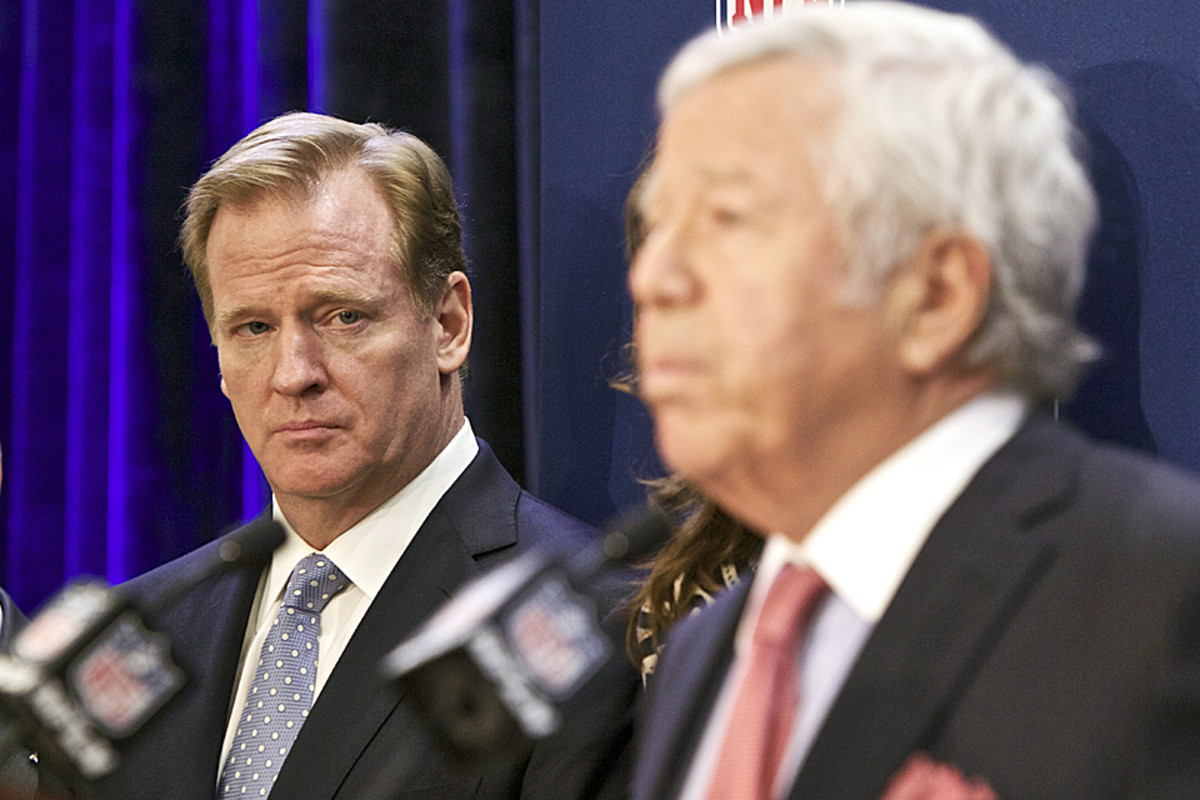
It’s the New Discipline
The Deflategate saga that began on an unseasonably warm January day in Foxborough four months ago has reached a flashpoint with discipline announced for the Patriots and Tom Brady. The story is not over yet, however, with expected appeals stretching for weeks, if not months (perhaps even years), with continued aftershocks beyond that.
PRV (Post-Rice Video) Era
As to my reaction to the discipline, I predicted four games for Brady last week but am surprised by the loss of a first-round draft pick, truly valuable currency in NFL inventory. The NFL has become enamored with enhanced discipline when a “pattern of behavior” exists, and that affected the Patriots. Just as Roger Goodell has used that standard in player conduct discipline, he is using it with organizations, holding the past transgression of Spygate against Robert Kraft and his franchise.
To me, however, there is another reason for harsh discipline. Timing matters, nothing happens in a vacuum and we are now living in the PRV (Post-Rice Video) era in the NFL. The league was shamed and embarrassed at the under-punishment of Rice, since corrected, and seems intent on going the other way. Adrian Peterson was indefinitely suspended after a plea bargain to a misdemeanor; Greg Hardy received a 10-game suspension despite having charges against him vacated; Browns general manager Ray Farmer received a four-game suspension for texting messages to the sideline; Falcons president Rich McKay was disciplined for piped-in crowd noise despite having no knowledge of the transgression. We are in a new era of NFL discipline; punishments are coming at the player, executive and organizational levels.
Hammer Drops, Message Sent
Peter King weighs in on what the Deflategate judgment means for Tom Brady and the Pats, and the signal it was intended to convey to the other 31 teams in the league. FULL STORY
Defiance discipline
Although the penalties are not apportioned, it seems clear that a significant share of discipline—to both Brady and the Patriots—is attributed to lack of cooperation and noncompliance with the investigators.
While Tom Brady answered questions from investigators, he did not turn over communications from his phone and other devices, information that could have been central to the inquiry. Many, including Brady’s attorney Don Yee, have emphasized that Brady should not trust the NFL with his phone, even if properly vetted to exclude personal information. However, Ted Wells, in a rare explanation of his methods in response to Yee’s accusations, set the record straight there: Brady was never asked to surrender his phone, only for Yee to submit printouts of relevant communications with Patriots staffers (a request that was denied). That changes the narrative a bit.
Were I investigating Brady and heard a forceful denial, I would have simply said I believe you Tom, just let me see copies of your communications with those guys so I can check the box. Certainly, without any subpoena power, Brady and his legal team were within their rights to refuse, but they had to know there could be consequences. Right or wrong, the NFL treats the failure to cooperate as a misdeed on equal footing to any skirting of the rules.
Ted Wells Strikes Back
Ted Wells doesn’t usually talk to the media after he releases a high-profile report. On Tuesday, he made an exception. In the ugly battle between the NFL and its reigning champion, the independent investigator has chosen a side FULL STORY
And, it would seem, Brady’s lack of cooperation entered the calculus of penalties against the Patriots. When these investigations are commissioned—whether it’s the Wells Report with the Dolphins, the Wells Report with the Patriots, the Mueller Report with the NFL—employees take their cues from above. While the investigators cannot force testimony, a directive from the top—whether from Steve Ross, Roger Goodell or Robert Kraft—to cooperate would certainly carry weight. Judging from Brady’s intransigence, that did not happen here.
Brady laughed off questions about tampering with footballs from the start of the inquiry; Kraft demanded an apology before the investigation even began. It is hard to believe those attitudes did not figure into the discipline.
Hindsight is 20/20, but if Tom Brady had come out right away and said Yes, I like the pressure on the low side, but I realize we went south of that on a few balls; my fault. we would have had a much different offseason. The defiance, the lack of cooperation and the scorched earth attitude from the agent have not helped his—or the Patriots’—cause.
In 25 years of experience on different sides of the NFL, I never had a single conversation about football pressure until January. In the scheme of things, it is not a big deal. What is a big deal, however, is a dismissive attitude towards evidence of a ball-tampering scheme that may have been going on for years, and a lack of cooperation with an investigation trying to ferret out the truth. The punishment was to Brady and the Patriots, but the message was sent to all team owners and executives: If your integrity is in question, show and tell us why it should not be.
10 Questions for Brady
It’s time for Tom Brady to stand up and state his case. Here’s what Peter King would ask him FULL STORY
Relationship strained
I have spoken often of the professional and personal relationship between Goodell and Kraft, with one team president I know calling Kraft the “Senior Commissioner.” Goodell has obviously strained that relationship, yet in doing so may have strengthened other relationships among his constituency. Many eyes around the league were watching Deflategate play out; now many sit in smug satisfaction as the Patriots, seen as always pushing to the competitive edge (and sometimes beyond), lick their wounds. Let’s not be naïve: the NFL trades on political investments, and Goodell just made a major deposit with several relationships while risking one, albeit an important one.
Next steps, Brady’s legacy
Brady will certainly appeal, with the assistance of attorney Jeffrey Kessler, the NFL’s nemesis in player misconduct hearings and lawsuits. Kessler will certainly start with a vehement demand for an independent arbitrator, which will be denied by—you guessed it—Goodell (it doesn’t hurt to ask). And while Goodell, in my opinion, will not take the role of appeal hearing officer himself, he will designate one of his league-affiliated hearing officers, such as longtime NFL attorney Harold Henderson, rather than someone truly independent. Assuming Goodell uses such an arbitrator, if the result does not suit Brady, Kessler may repeat his (successful) strategy used with Adrian Peterson and take the matter to federal court. Buckle up.
Speaking of lawyers, before the penalties were announced Kraft had taken a tone of acceptance. Now, he seems to be cryptically suggesting that he may pursue legal action against his (former) friend. In the end, however, I think Kraft will accept the penalties and move on rather than go through not weeks, not months, but years of litigation ahead. If people think the Wells investigation took a long time, that was a sprint compared to the marathon of an antitrust trial.
Finally, as to the notion of Tom Brady’s legacy… I think legacy is something personal for each of us. For me, I have less of a problem with Brady tinkering with air pressure of footballs than I do with his feigning ignorance about the rules and his relationship—or professed lack thereof—with the “Deflator” Jim McNally.
Follow The MMQB on Facebook, Twitter and Instagram.
[widget widget_name="SI Newsletter Widget”]




































